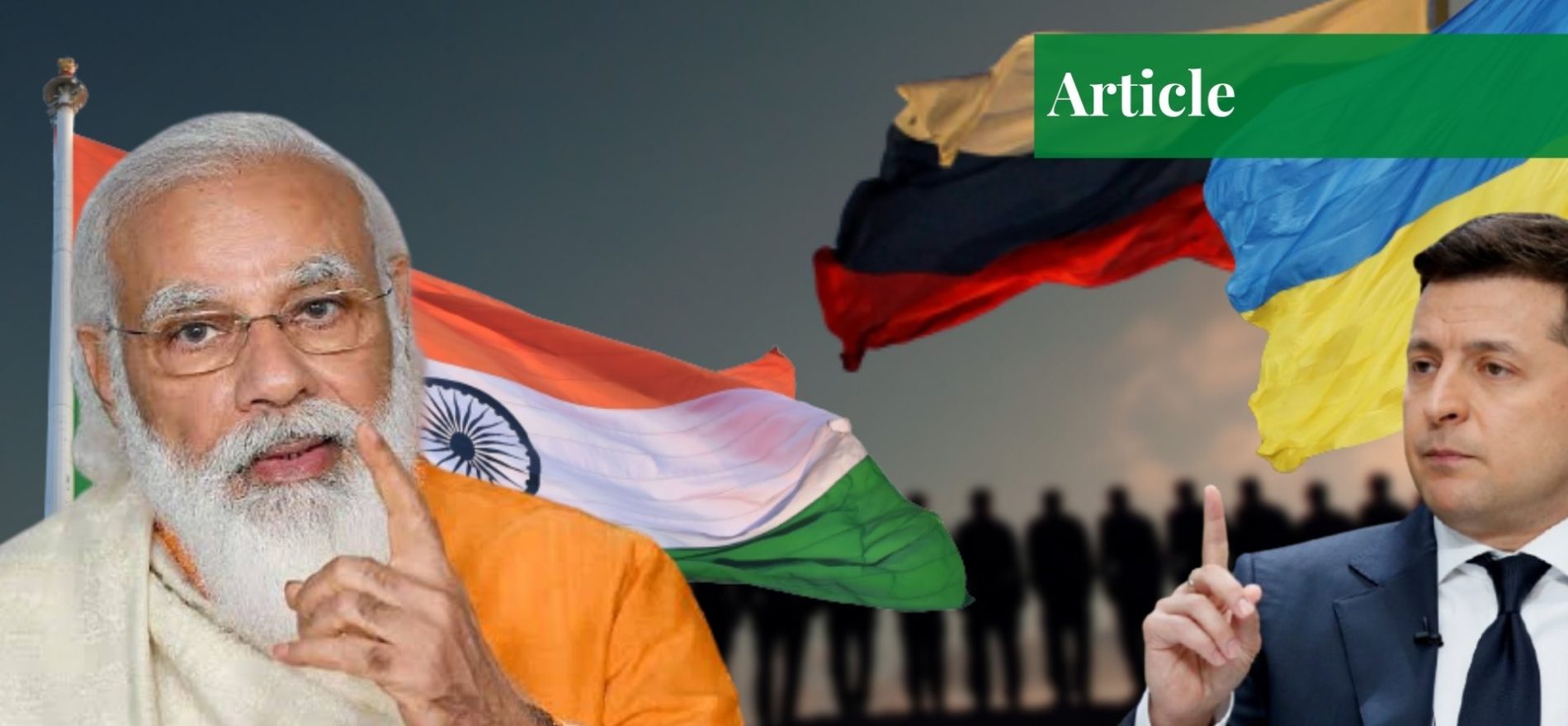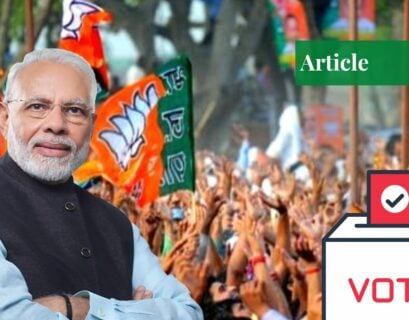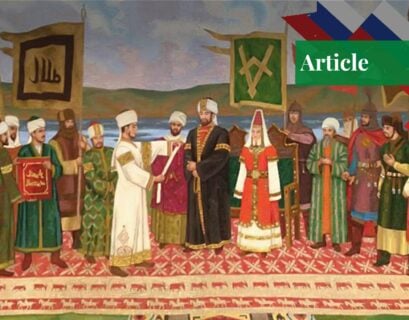Introduction
The Republic of India has attained stronger relations with not only Russia and the Western powers, but also with the state of Ukraine. The authors, Syed Haris Shah and Muhammad Shahkar Ijaz Khan will develop an understanding of how India can stand in a position of delivering humanitarian support to Ukraine while abstaining from openly supporting the stance of the Western states against Russia. The impartiality of New Delhi will impact India-Russia and India-Ukraine relations.
The invasion of the Ukrainian territory, regarded as a “special military operation” by the authoritarian government of President Vladimir Putin of Russia, began in February of 2022 and paved the path to several international developments. The states in the Global South, as well as the Global North, reacted in one way or another. Globalization was also impacted as the Western powers imposed sanctions against the Russian Federation and its president, Vladimir Putin.
The foreign policies or relationships of different states around the globe came into the spotlight as a result of the reaction to the crisis in Ukraine. Different states around the globe followed the Western powers in either completely restricting or abandoning their relations with Russia. Therefore, the Republic of India specified a unique stance towards Russia’s conflict with Ukraine, as the interest of the republic lies on both sides. Its decision to remain neutral also has implications for the QUAD member states, given their contesting views on the war.
Pressure on India
Due to the strong India-Russia relations, India is considered an old ally of the Russian Federation. It is not only on good terms with the powers of the North Atlantic Treaty Organization (NATO) but also with Ukraine. There is already a standing challenge for Russia, as Putin’s war on Ukraine created turmoil for the existing Indian students inside the country. Moreover, it was reported that one of the students of India, studying in Ukraine, was killed due to the military actions of Russia in civilian-populated areas.
India faces pressure not only on the international level but also on the local level for the condemnation of the violence initiated by Russia. On the local level, one of the parliamentarians of India, P. Chidambaram, stated on his official Twitter account that “The Government of India should stop its verbal balancing act and sternly demand that Russia stop immediately the bombing of key cities in Ukraine.”
India has denied being a part of the diplomatic coalition of the states led by the United States to condemn, sanction, and restrict Russia for the Russian invasion of Ukraine. Due to the close India-Russia relations, the republic did not want to be a part of a resolution that was put forward against the Russian Federation to condemn its actions inside the UN Security Council (UNSC).
The abstention of India from the UNSC, therefore, disappointed some of the leading politicians and diplomats inside Washington D.C. as well as in the other Western capitals. It is no doubt that New Delhi remained silent over the aggression by Moscow against the Ukrainian territory which was a considerable and clear violation of international law.
The Wire’s Deepanshu Mohan placed some eye-opening remarks toward the Bharatiya Janata Party (BJP)-led government of India. He said, “The inability of the Modi government to condone or condemn Russia’s actions in Ukraine – with each passing week may indirectly affect us (and our interests) in the longer term, despite the bonhomie we might share with Russia.”
Mohan further stated, “Once the evacuation of Indians is complete (as it is about to be), India’s geopolitical position of ‘silence’ will increasingly be questioned (in a way it already is). More importantly, India (like many other democratic nations) has a moral responsibility to say more – and do more – to counter Putin’s Russia.”
There is no doubt that India had remained non-aligned during the era of the Cold War, maintaining good relations with the former Soviet Union, the United States, and Ukraine. But the experts in India suggested that India must support the “liberal internationalist” or “American exceptionalism” agenda regardless of the India-Russia relations.
They argue that the world would be a completely different place if Joseph Stalin’s Soviet Union hadn’t faced a setback. Moreover, Putin’s expansionist terms of neo-Eurasianism deny the basic ideals of democracy that were initiated by the fathers of the Republic of India—Mahatma Gandhi and Jawaharlal Nehru.
India’s Neutrality
Despite being a member of the Indo-Pacific alliances led by the United States, India not only remained diplomatically silent towards Russia during the Russian conflict with Ukraine, but the India-Russia trade relations continued as well. India is also reportedly buying cheaper oil and petroleum products from Russia to meet its energy needs while attaining a position of a unique strategic calculus by growing ties with the United States.
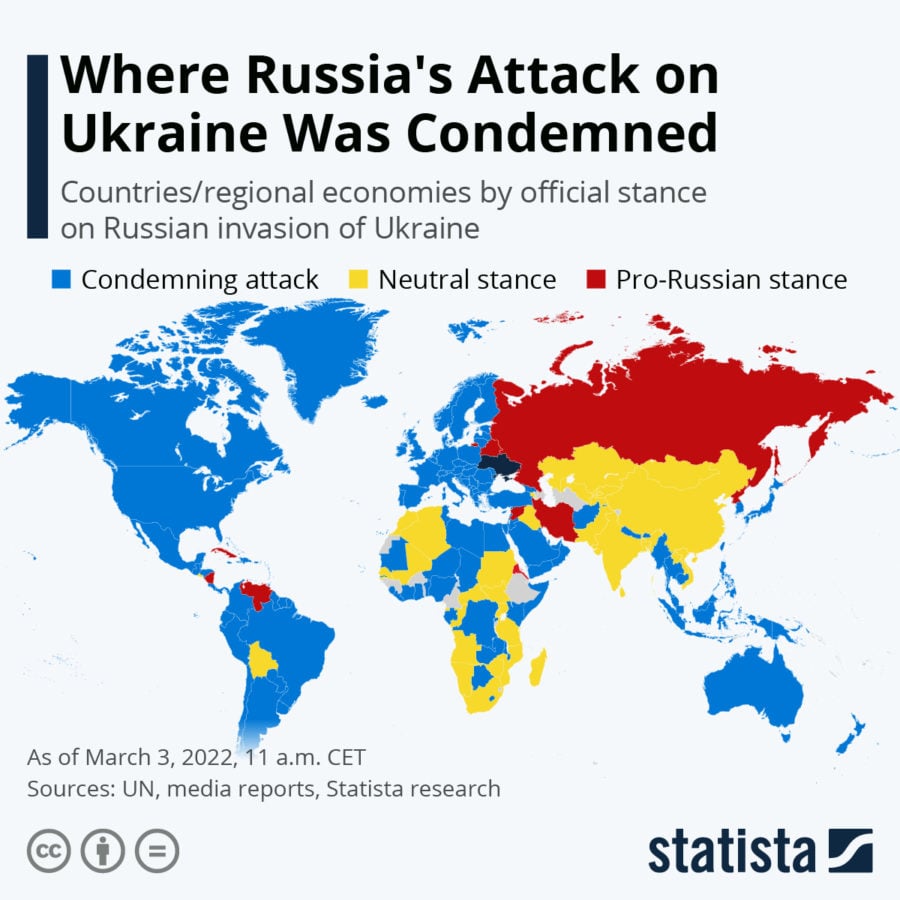
There is no doubt that India has to show a soft corner to the leadership in Russia because Moscow sustains a similar position towards New Delhi since the Cold War. This point can be justified by the statement of former Soviet leader Nikita Khrushchev, who said, “We are so near that if ever you call us from the mountain tops we will appear at your side.”
Moscow exercised its veto power, being a permanent member of the United Nations Security Council, and supported India in the matter of Kashmir by vetoing notions that went against New Delhi. Although the India-Russia relationship is multifaceted, there is no doubt that there is still a tricky path ahead as India has deep interests in the opposing side of Russia as well.
India’s Response to the Russia-Ukraine War
India provided humanitarian support to Ukraine and gave statements about its territorial integrity. The Indian prime minister, Narendra Modi, showed interest in mediating the conflict between Kyiv and Moscow. In such developments, the prime minister of India even thanked President Volodymyr Zelensky of Ukraine for helping Indian students and citizens evacuate from the warzone, even calling for the cessation of violence and the resolution of the conflict under principles of international law.
It is not a hidden truth that while pursuing its realist interests, India has eventually won the confidence of its old and closest geopolitical ally—Russia—due to its “neutral” foreign policy. Whereas, the West perceives India as a potential actor in conflict resolution. Therefore, the measures taken under the prospects of Indian foreign policy serve to achieve New Delhi’s vested interests on both sides.
India’s Consigned Interests with Kyiv and Moscow
The Republic of India’s balanced relation in the crisis of Ukraine gives an overview of the point that New Delhi does not want to impact its vital strategic and economic interests attached to the actors engaged in the Russia-Ukraine crisis. The fact is that capitalism or materialism also allows Indians to pursue a diplomatic stance that won’t hurt their economic and trade interests or objectives.
There is no doubt that in the nation-building process of India since its independence, Moscow’s assistance has played a central tide in it. India’s achievement of several important aspects inside its economic, nuclear, food, military, and industrial sectors were possibly done through Russian collaboration and the close India-Russia ties.
The oil and other commodities for India, including equipment for the military, major industries, and aircraft, are possibly acquired through sustained trade with Russia. The reason why India did not take part in sanctioning Moscow is that such actions will definitely put a negative weight on India’s economic ambitions, whether it comes to exports or imports.
There is a definite reason that even without taking sides or part in this war, India will definitely suffer a cost in terms of economy and trade. It is because the ban on Brent crude oil by the United States made the prices reach $130 per barrel. As India’s trade with Russia in terms of oil and other commodities is around one percent, there will be a definite possibility of a globalized spillover of inflation to India. Similarly, India imports food supplies and some of the important equipment for the Indian Armed Forces from Ukraine. The invasion of Ukraine can also cause a current account deficit in India as well.
Similarly, coming to the military and nuclear interests of India, there is also another major reason for New Delhi to pursue such a diplomatic stance amid the Russia-Ukraine crisis. India is pursuing a realist stance in its foreign policy perspective to not let such a chaotic situation create strategic and economic havoc for the republic.
India’s realist stance stems from its heavy reliance on military equipment and supplies from Moscow. Most of the Indian aircrafts as well as other important military equipment are either Soviet-made or Russian-made. Being an important geostrategic partner, India had been supported by Moscow several times in terms of military supplies and equipment, most especially in the case of India’s war against Pakistan in 1971.
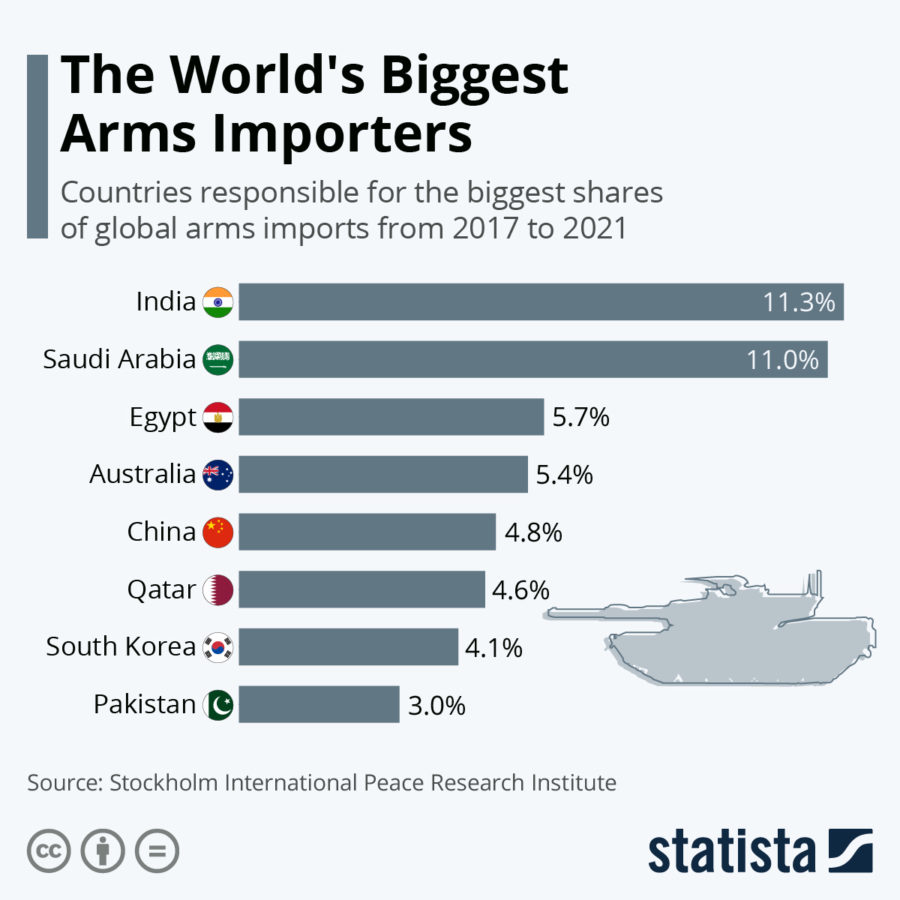
India has remained a special focus of the United States, in negative terms, when it comes to the deep India-Russia relations. India has no doubt, procured Akula class submarines on a lease, collaborated with Russia to achieve its nuclear ambitions, ensured the supply and sharing of expertise for important strategic assets like BrahMos missiles, and provided assistance in producing A-203 rifles for the Indian military and strategic interests.
India has already made a deal with Russia to acquire state-of-the-art Russian S-400 systems that can set an enormous calculus for its challenges inside the South Asian region. If India leans more toward the US and the West, it will cause it to face a diplomatic or regional challenge in the form of Moscow getting more and more closer to Pakistan—India’s arch-rival. The relations between Pakistan and Russia are already improving and may be used to create a bargaining chip in such possible developments. Moreover, given the speed at which Pakistan and Russian relations are changing, India needs to be even more wary of taking a stance against Russia.
On the other side, India’s condemnation had earned a diplomatic status from the West in which the United Kingdom pointed out that India’s evolved or neutral position had strengthened its ties with the West. India was praised, despite its silence, by the UK for playing a role in pushing against Russia for its illegal invasion of Ukraine.
Considering that the European community must consult India to end the Russia-Ukraine conflict, there is no doubt that India has gained importance on a diplomatic basis inside some of the important capitals of Europe, including Ukraine. The national interests of India towards Ukraine also lie in the aspect of realpolitik for New Delhi, as justified by the statement of Oleksandr Svitych that “India’s condemnation of the Russian aggression is its litmus test of global power aspirations.”
Svitych has also further mentioned that since India is dependent on Ukraine for its military and food commodities, it must openly support Ukraine in this crisis despite the fact that Modi’s “Hindutva” aspirations are almost similar to Putin’s “neo-Eurasianism.”
Consequences & Opportunities for Modi’s India
The future ahead for India, in the current scenario, has both opportunities and consequences. India’s silent position over the crisis in Ukraine will cost it close ties with the United States in terms of strategic collaboration. However, there will be an opportunity for the republic in terms of diplomatic recognition from both spectrums of the international order.
The development of the Beijing-Moscow axis used to be a challenge for New Delhi in the past, as China – an immediate neighbor and rising dragon inside the Asia-Pacific – posed numerous challenges and has a territorial dispute with India. But now, due to India’s neutrality, these actions will pursue recognition from this axis because India shares a partnership in important international platforms with China and Russia collectively, like the Shanghai Cooperation Organization (SCO) and BRICS.
The diplomatic importance of India gradually increased as representatives from the UK, the US and Russia visited India in recent days concerning the Russia-Ukraine war. China and India have an almost similar stance to Russia’s position in this crisis. Therefore, the visit of Chinese Foreign Minister Wang Yi to India after 2020’s Himalayan dispute also portrays that India may achieve a closer relationship with China in the future.
India’s stance towards the Ukrainian crisis has gained recognition from the European Union and the United Kingdom as well. Anyhow, this recognition can deteriorate as India and the United States can face a possible diplomatic backlash despite India being a partner in several Indo-Pacific alliances.
Having a balance between the two sides of the international community can cost India as well. It is no doubt that India is a partner of the United States in the alliances against the rising of China. Therefore, India has a deep defense partnership in terms of the Industrial Security Agreement (ISA), Logistics Exchange Memorandum of Agreement (LEMOA), and the Compatibility and Security Agreement (COMCASA). The deals and assistance to India crossed the amount of $20 billion in the year 2020 which eventually increased after Joe Biden came into power.
The lawmakers from both the Democratic and Republican parties in the US Congress show signs of distrust when it comes to a partner like India. India, which was already in the spotlight for making defense deals with Russia, was brought to the discussion table several times to be punished with sanctions under the legal terms of the “Countering America’s Adversaries through Sanctions Act (CAATSA)”.
The disappointment from the United States also came to the front as the administration of Joe Biden was hoping for the reduction of Moscow’s importance inside India. Senator J. Shaheen of the democrats had stated in her remarks over the Russia-Ukraine war to notice India’s position. She also stated, “India’s the world’s largest democracy. And so I had hoped that India would side with the rest of the world’s democracies in support of Ukraine.” The recalling of the diplomatic cable by the US to persuade India is also another sign that possible challenges from a regional hegemon like India can rise up.
If you want to submit your articles, research papers, and book reviews, please check the Submissions page.
The views and opinions expressed in this article/paper are the author’s own and do not necessarily reflect the editorial position of Paradigm Shift.
